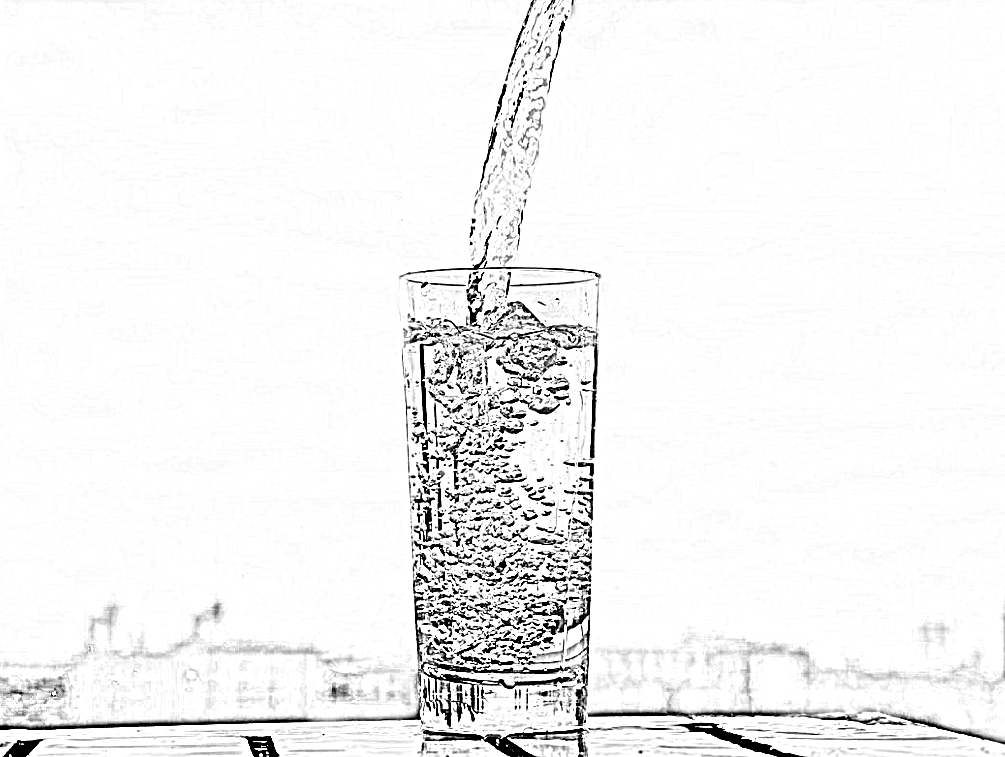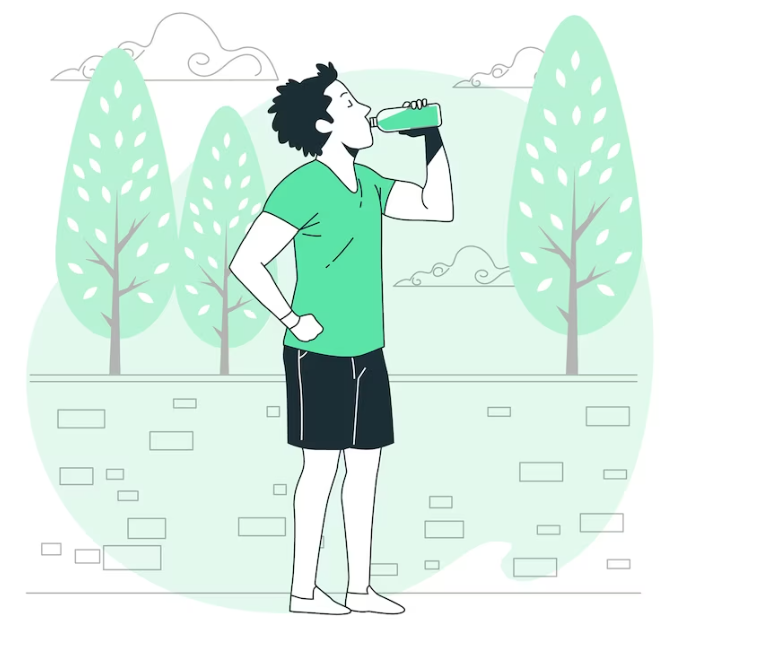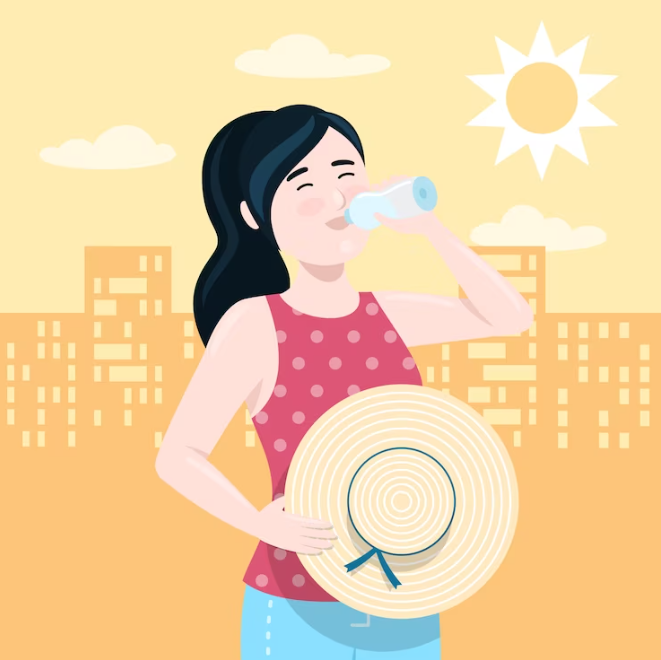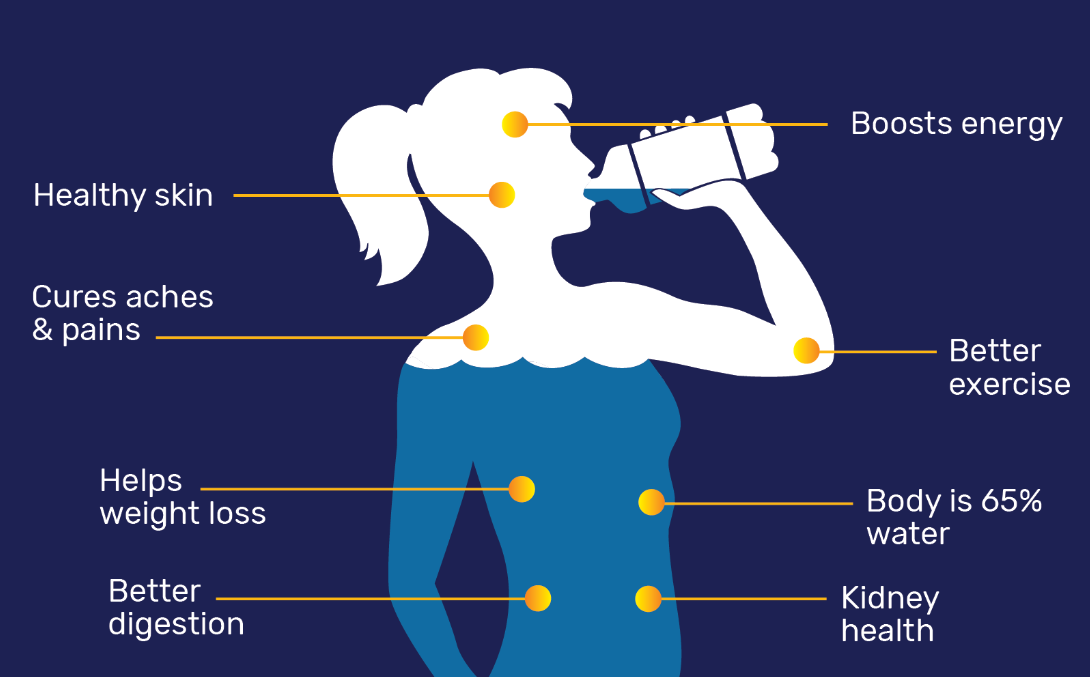Quenching Your Thirst, a refreshing glass of ice-cold lemonade awaits you on this scorching summer day. We’ve all experienced that undeniable sensation—when your throat is parched, and your body is practically begging for a drink. Thirst is a fundamental signal from our body, indicating that it’s time to replenish the fluids we lose throughout the day. But have you ever wondered what exactly happens when we’re thirsty? And how can we effectively quench that thirst while keeping our bodies in tip-top shape? In this article, we delve into the science behind thirst, the importance of proper hydration, and practical tips for satisfying your body’s hydration needs.
Table of Contents
1.Understanding Thirst: The Body’s Cry for Hydration
The Science Behind Thirst
At its core, thirst is a complex physiological response triggered by your body’s need for water. When the balance of fluids in your body is disrupted, your brain’s hypothalamus—a small but mighty control center—detects these changes and signals your body to seek hydration.
Factors Affecting Our Thirst Mechanism
Several factors influence our thirst mechanism, including external temperature, physical activity, and even the consumption of certain foods. For instance, spicy foods can stimulate thirst due to their ability to increase body temperature.

2.The Importance of Hydration for Health in General
Hydration and Digestion
Proper hydration aids in digestion by facilitating the transport of nutrients and the elimination of waste. Water plays a vital role in breaking down food and absorbing its essential components.
Impact on Cognitive Function
Staying hydrated is closely linked to cognitive function. Even mild dehydration can lead to decreased focus, impaired memory, and difficulty in making decisions. To keep your brain sharp, staying hydrated is key.
3.Dehydration: Unveiling the Risks and Warning Signs
Mild vs. Severe Dehydration
Dehydration exists on a spectrum, ranging from mild to severe. Mild dehydration may cause dry mouth and dark urine, while severe dehydration can result in dizziness, rapid heartbeat, and confusion.
Recognizing Dehydration in Different Age Groups
Dehydration affects people of all ages differently. Children and the elderly are particularly vulnerable due to their smaller fluid reserves. Recognizing the signs of dehydration in different age groups can help prevent complications.
4.Water vs. Other Hydration Sources: Making the Right Choice
Dispelling Hydration Myths
The 8×8 rule (eight 8-ounce glasses of water a day) is a common hydration myth. The reality is that your hydration needs are influenced by various factors, including your activity level, age, and climate.
Incorporating Fruits and Vegetables in Hydration
Water-rich fruits and vegetables, like watermelon and cucumber, can contribute significantly to your daily fluid intake. In addition to hydrating, these foods also offer vital vitamins and minerals.
Stay tuned for the upcoming sections as we continue our journey to explore the nuances of hydration, provide practical tips for staying hydrated, and unravel the fascinating connection between hydration and various aspects of health and well-being.
5.Mastering the Art of Effective Hydration
How Much Water Do You Really Need?
The age-old question of how much water to drink has sparked numerous debates. While the “8×8” rule isn’t universally applicable, a general guideline is to aim for around 8 cups (about 2 liters) of fluids daily. However, individual needs vary based on factors like body size, activity level, and climate.
Hydration Timing: Pre, During, and Post-Activity
Hydrating strategically around physical activities is crucial. Drinking water before exercise helps prepare your body for the upcoming exertion, while staying hydrated during exercise maintains performance and reduces the risk of overheating. Post-activity, replenishing lost fluids aids in recovery.

6.Staying Hydrated on Busy Days: Hacks and Habits
Hydration at the Workplace
Amidst busy workdays, staying hydrated might slip our minds. Keep a reusable water bottle on your desk as a visual reminder to sip regularly. Set timers to take short water breaks, helping you maintain hydration even during intense tasks.
Hydration-Friendly Snacking
Certain foods are rich in both water content and nutrients. Snack on juicy fruits like grapes and oranges, or enjoy crisp veggies such as cucumber and celery. These snacks not only satisfy your hunger but also contribute to your daily fluid intake.
7.Sports and Hydration: Fueling Performance and Recovery
Hydration’s Impact on Athletic Performance
For athletes, proper hydration is integral to performance. Dehydration can lead to decreased endurance, muscle cramps, and impaired coordination. During prolonged exercise, consider consuming electrolyte-rich beverages to replace lost minerals.
Electrolytes and Rehydration Drinks
Electrolytes—essential minerals like sodium, potassium, and magnesium—are lost through sweat. Rehydration drinks, especially those with a balanced electrolyte profile, can be beneficial after intense physical activity.
8.Hydration for Different Lifestages
Hydration Tips for Kids and Teens
Children and teenagers have higher water needs relative to their body size. Encourage them to frequently consume water, and give them hydrated treats.
Incorporate fun, colorful water bottles to make hydration engaging.
Hydration Concerns in Aging Adults
Aging can dull the sensation of thirst, making older adults more susceptible to dehydration. Caregivers and seniors should monitor water intake, and seniors should establish a daily hydration routine.
9.Weathering Extremes: Hydration in Hot and Cold Conditions
Hydration in Hot Climates
High temperatures lead to increased fluid loss through sweat. When in hot climates, prioritize hydration by drinking water at regular intervals. Avoid drinking too much alcohol and coffee because they can cause dehydration.
Winter Hydration Essentials
Cold weather doesn’t diminish the need for hydration. Winter air can be dry, leading to increased fluid loss through respiration. Herbal teas, warm water with lemon, and hydrating soups are excellent choices during colder months.

10.The Mindful Hydrator: Linking Mindfulness and Hydration
Mindful Drinking Techniques
Mindfulness extends to the way you drink. Slow down and savor each sip, paying attention to how your body responds. This practice fosters a deeper connection with your body’s hydration needs.
Hydration as a Self-Care Ritual
View hydration as an act of self-care. Create a calming hydration routine, perhaps starting your day with a refreshing glass of water or ending your evening with a soothing herbal tea.
11.Dispelling Common Hydration Misconceptions
Overhydration: Is It Possible?
While uncommon, overhydration can happen and result in hyponatremia. This condition arises when the balance of electrolytes in your body is disrupted by excessive water intake.
Caffeine and Hydration
Contrary to popular belief, moderate caffeine consumption isn’t necessarily dehydrating. While caffeine does have diuretic effects, beverages like coffee and tea still contribute to your overall fluid intake.
12.Hydration and Medical Conditions: Separating Fact from Fiction
Hydration and Kidney Health
Proper hydration supports kidney function by aiding in the elimination of waste products. However, excessive fluid intake can strain already compromised kidneys Consult your healthcare provider for more detailed guidance.
Hydration’s Role in Managing Headaches
Dehydration can trigger headaches in some individuals. If you’re prone to headaches, ensuring consistent hydration may help reduce their frequency and intensity.

13.Hydration Myths from Around the World
Cultural Perspectives on Hydration
Different cultures have unique approaches to hydration. For instance, traditional Chinese medicine emphasizes balancing hot and cold foods for overall well-being, including hydration.
Traditional Hydration Practices
Exploring traditional practices can provide insights into holistic approaches to hydration. Ayurveda, the ancient Indian system of medicine, offers guidance on balancing fluids through diet and lifestyle.
14.Conclusion: Quenching Your Thirst
In the journey to optimal health, mastering the art of hydration is essential. From understanding the science behind thirst to adopting mindful drinking habits and making hydration a part of your daily routine, you have the power to quench your body’s thirst and enjoy the benefits of staying well-hydrated.
FAQs
How can I tell if I’m dehydrated?
Dehydration symptoms include weariness, dry lips, and dark urine. Listen to your body and prioritize regular fluid intake.
Is it possible to drink too much water?
While rare, overhydration can occur and lead to electrolyte imbalances. Moderation is key.
What is the most effective strategy to stay hydrated while working out?
Drink water before, during, and after exercise. For intense workouts, consider sports drinks with electrolytes.
Can certain foods help with hydration?
Absolutely. Water-rich fruits and vegetables, as well as hydrating beverages like herbal teas, contribute to your fluid intake.
How does hydration affect skin health?
Proper hydration supports skin elasticity and a radiant complexion. Water intake, along with a nutrient-rich diet, plays a role in skin health.

Nice 🥰